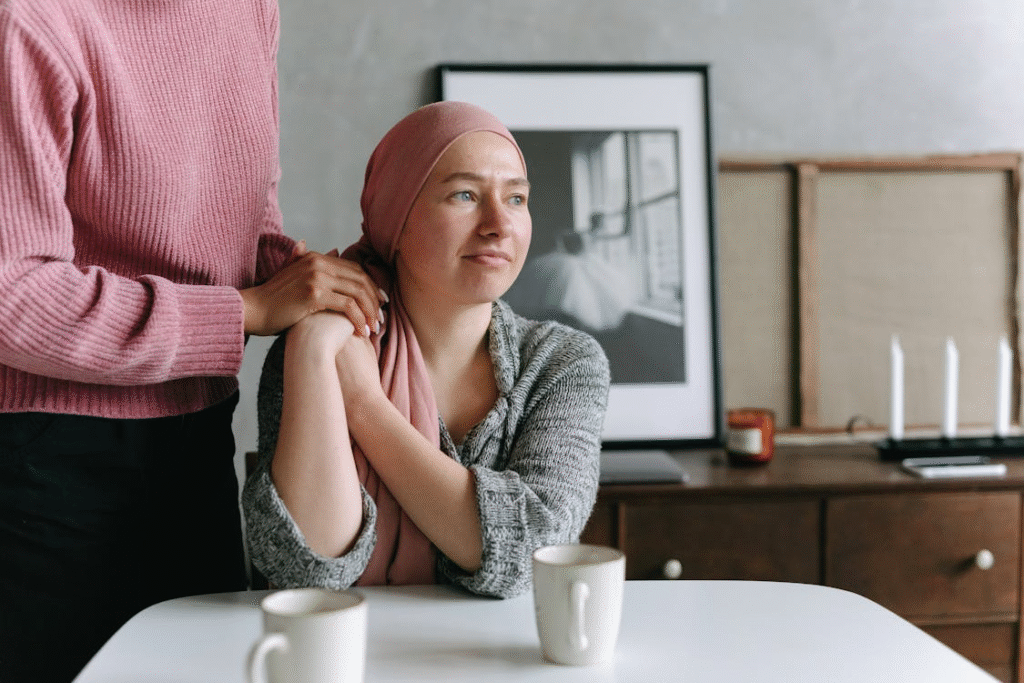Cancer is a formidable adversary, often isolating those who face it. Many patients find themselves battling the physical repercussions of the illness and the emotional toll it takes. The significance of building a reliable support network cannot be understated in this journey.
From family and friends to community organizations, an interconnected support system can make all the difference in a cancer patient’s life. A strong circle of support serves as a lifeline, providing emotional, psychological, and sometimes practical assistance at various stages of the cancer experience.
Reconnecting With Others
For many cancer patients, maintaining connections can be daunting. The fluctuations in health can lead to feelings of inadequacy or shame, causing individuals to withdraw from loved ones. Overcoming this barrier requires intentional effort to reach out and reconnect. Sharing personal experiences and vulnerabilities can strengthen these relationships, creating a space where open communication flourishes. The team from Heroz Like Me says that forging these connections is crucial for emotional healing. Engaging with others can provide encouragement and reminders of the strength that comes from unity.
Modern technology enhances opportunities for connection, allowing those undergoing treatment to connect with support groups or communities of individuals facing similar challenges. Engaging in social activities, whether virtually or face-to-face, can facilitate shared experiences that strengthen bonds. Patients should feel empowered to seek these connections that nurture their emotional well-being and remind them that they are never truly alone in their battle against cancer.
The Role of Family and Friends
Family members and friends often serve as a primary source of support during cancer treatment. These relationships are foundational, as they offer love, understanding, and encouragement. Family and friends must educate themselves about the disease and its treatments to provide informed support. Increased awareness can dispel myths and help loved ones understand the emotional and physical challenges that cancer patients face.
Encouraging an open dialogue enables patients to express their fears and anxieties. Listening plays a pivotal role in this process. Friends and family should approach conversations with compassion, giving cancer patients a safe space to share without fear of judgment. More than just talking, practical assistance, like preparing meals, accompanying individuals to appointments, or simply being present for companionship, can alleviate burdens that may seem overwhelming.
Community Support Networks
Beyond family and friends, community support networks can offer additional resources for cancer patients. Local organizations, support groups, and online communities provide a platform for individuals to connect with others facing similar challenges. These networks can offer a wealth of information, emotional support, and practical resources to help navigate the complexities of cancer treatment and recovery.
Many communities offer programs that encourage social interaction amongst patients, promoting understanding and shared experiences. Volunteering opportunities, outreach programs, and health seminars allow individuals to engage with others while spreading awareness of the issues cancer patients face. Being part of a community fosters a sense of belonging, helping to alleviate feelings of isolation often experienced during treatment.
Professional Support Systems
Mental health professionals, such as psychologists or counselors, can provide crucial support during a cancer diagnosis and treatment. The emotional weight of cancer is sometimes overlooked in favor of the physical aspects of the disease.
Mental health services can help address feelings of anxiety, depression, and grief that may accompany a cancer diagnosis. Professional support can offer coping strategies to deal with the stress and uncertainty of cancer treatment. Techniques to enhance emotional resilience can empower patients to navigate their journey more effectively. For many, having a dedicated space to express their feelings provides considerable relief.
The integration of mental health care along with medical treatment leads to a more holistic approach to cancer care. Many healthcare facilities now recognize the importance of accompanying support services, leading to collaborations between oncologists and mental health professionals. This team-based approach addresses the patient’s well-being, ensuring that every individual gets the comprehensive care required during this challenging time.
Empowering Others to Support
Empowering others to participate in the support system can enhance the care experience. Patients can communicate their needs clearly, which invites friends and family into the process. Providing guidelines or specific requests can reduce uncertainty among caregivers about how to help effectively.
When loved ones are informed about what kind of support is needed, they can step into their roles with confidence. Sharing educational resources or literature about what to expect during treatment can better equip loved ones to provide meaningful support.
Many cancer patients find comfort in having their friends and family involved in appointments or treatment sessions. This creates shared moments of empowerment and reinforces a unified support structure. When loved ones feel included and educated, the entire support system becomes stronger. Cancer is a challenging journey, but with a strong network of support, individuals can navigate the battles more effectively.
Building a circle that encompasses family, friends, community, and professionals makes a significant difference. Motivation and strength become collective, reducing feelings of isolation as patients understand they are not alone in their fight. The journey of cancer can be daunting, but the right support transforms it into a shared experience marked by love, understanding, and hope.





